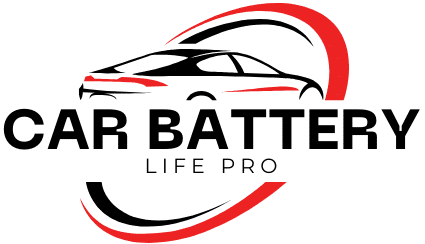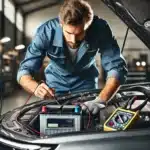When you’re setting up a solar system, whether it’s for your cabin in the woods or a backup power source at home, the heart of the setup is undoubtedly the battery. Selecting the perfect deep-cycle battery isn’t just about purchasing power—it’s about ensuring your system works efficiently and reliably over the long haul.
Table of contents
In this guide, we’ll dive deep into solar system batteries, helping you make an informed choice that aligns perfectly with your energy needs.
Why Choosing the Right Battery Matters
Imagine installing a solar system only to find out the battery can’t handle the demands during a blackout. That’s a scenario you want to avoid. Deep cycle batteries are critical because they store the energy your solar panels collect. Without a suitable battery, even the best solar panels are just showpieces. The right battery ensures you have power when you need it most and can dramatically reduce maintenance costs and inefficiency.
Types of Deep Cycle Batteries for Solar Systems

1- Lead-Acid Batteries
Let’s start with the old reliable: flooded lead-acid batteries. They’re often where many of us begin our solar journey, thanks to their affordability. They’re perfect if your solar needs are moderate and you don’t mind a bit of upkeep.
- Pros: Cost-effective and tried-and-tested
- Cons: Requires regular maintenance and has a shorter lifespan
2- AGM (Absorbent Glass Mat) Batteries
AGM batteries are a step up, known for their durability and ease of use. They don’t require the same level of maintenance as their flooded counterparts and are more resistant to temperature fluctuations.
- Pros: Durable, low maintenance
- Cons: More expensive, slightly less efficient than other models
3- Gel Batteries
In more extreme conditions, gel batteries shine. They use a thick, pasty electrolyte, which makes them great for deep discharge applications typical in solar setups.
- Pros: Excellent for harsh conditions, minimal upkeep
- Cons: Higher cost, must be charged carefully to avoid damage
4- Lithium-Ion Batteries
As for the cream of the crop, lithium-ion batteries are where it’s at. They boast long lifespans and impressive efficiency, making them ideal for those looking to invest in the best.
- Pros: High efficiency, long lifespan, low maintenance
- Cons: Higher initial costs, installation specifics need to be spot on
Factors to Consider When Choosing a Deep Cycle Battery

1- Battery Capacity and Size
Choosing the right capacity is like picking the perfect pair of shoes; they must fit just right. Too small, and your system won’t meet energy demands. Too large, and you’re overspending on capacity you don’t need.
2- Battery Lifespan and Durability
We all want a battery that lasts. Durability not only affects how long the battery will serve you but also how well it performs over its lifespan.
3- Efficiency and Depth of Discharge (DoD)
Understanding the DoD of your battery helps you gauge how much energy can be used without harming the battery’s long-term performance. It’s all about getting the most from your investment.
4- Maintenance Requirements
We’ve got enough on our plates, right? Choosing a battery with minimal maintenance needs can save you both time and hassle, giving you more freedom to enjoy the benefits of your solar system.
6- Cost vs. Long-Term Value
While upfront costs are a consideration, think long-term. A more expensive battery upfront might save money down the line through lower maintenance costs and longer life.
How to Match Your Battery Choice to Your Solar System?
Picking a battery isn’t just about the specs—it’s about matching it to your specific solar system setup. Whether you have a robust off-grid system or a simple backup power setup, ensuring your battery and inverter are in sync is key to a smoothly running system.
Top Battery Brands for Solar Energy Storage
When shopping for your battery, stick with brands that have a proven track record for quality and reliability. Brands like Tesla, Samsung, and Panasonic are known for their high-quality batteries that offer great warranty conditions and reliable performance.
How to Properly Maintain Your Solar System Battery for Long-Term Use?
Regular check-ups are necessary to get the most out of your deep-cycle battery. Ensure it’s charged correctly and stored under ideal conditions to prolong its life and maintain efficiency.
Conclusion
Choosing the right deep-cycle battery for your solar system is a crucial decision that can greatly impact the effectiveness and efficiency of your renewable energy solution. By understanding the different types of batteries, what to consider when choosing one, and how to maintain it, you can ensure that your solar setup provides reliable power for years to come. Ready to power up? Choose wisely, and let your solar system shine!
Read more: Advanced Charging Techniques for Deep Cycle Batteries.







